Reformation
now browsing by category
Finishing Your Race Before Dying
Is seeking greatness from ego or God?
Who is setting your bar?
It is common to see many Christians setting their bar based on the teachings of their denomination and church.
The tone set by their denomination, more importantly, the local church, determines how far a believer desires to go in life.
Just be honest:
- Who is setting your bar and how far you can go in life?
- You (I mean your ego)?
- Your parents?
- The media you frequently listen to and watch?
- Your teacher or mentor or coach? Or
- God (your soul)?
Having ego isn’t the problem, the type of ego that possesses you is the issue
There were a few individuals who cared and boldly confronted me. They were frank in my face telling me that I had ego.
My immediate response always had been, who doesn’t have ego? Most of these good people were shocked!
- First, they didn’t know that I knew about having ego.
- Second, they didn’t anticipate that I’d be frank about it. They were expecting me to be apologetic. Why should I?
Sometimes for a few minutes while other times for hours and for more than one session- depending on with whom I was debating- I must explain to them that even Moses, Jesus, and Paul had egos except that they weren’t led by their ego.
You can imagine how stunned they were. They thought I was crazy, even speaking blasphemy for putting Jesus’ name into the mix. Of course, until I provided the context…
I don’t blame them. The problem is the definition of ego they had. In my world, there are two ego types:
- Healthy and normal, and
- Toxic and abnormal.
The healthy ego is necessary to survive in the physical universe
The normal ego is meant to help us in this dangerous world. Can you imagine what will happen if you always use your soul to guide you here on earth? You can’t protect yourself from:
- Car accidents,
- Fire, and
- Many other dangerous beings and things including bad people.
Think of your infancy years, before you developed your ego when you were 4 – 6 years old. You didn’t have a personal identity yet. You were trusting and relating to everyone, even strangers and potentially horrible people.
If a snake crawled toward you, you would have grabbed it and might have attempted to swallow it. If there was a fire in front of you, you would have played with it. You got my point…
Before we move on, I fully understand that the line between having a healthy and a toxic ego is very delicate.
What is more? At one point in life, before we developed our spirituality, we all might have been possessed by a toxic ego that thought there was only a physical universe, and the most important thing is survival and comfort of the physical body.
In the future, I will dive deep and talk about the different identities we have, in which universes they operate, and what their agendas and priorities are. Familiarizing ourselves with these personalities helps us to differentiate and also prioritize whose voice to hear and when.
Just a quick example, if I’m driving on a highway, I want my ego to be in charge and pay attention to avoid accidents and hurting other people around me. This isn’t the time to think heavenly. When I am in a prayer and fellowship mood, I silence my ego and command it to sit tight until I’m done. I tune to the voice of my inner self and leave the physical and metaphysical universes to communion with the heavenly beings in the spirit.
Depending on where I’m at a given time, what I’m doing, and with whom I’m interacting, I switch between my identities. You got the point…
You may be rolling your eyes and thinking that I’m being dishonest or having a multiple personality disorder.
If you’re tempted to negatively label me like that, you haven’t read what Jesus said: “Here I am sending you out like sheep with wolves all round you; so be as wise as serpents and yet as harmless as doves. But be on your guard against men.” (Matthew 10: 16)
Jesus was telling His disciples to be wise!!! You can’t always be a dove or a ‘serpent’ and always and everywhere. Be wise when to switch your personality hat…
Ego will fight to death to stop you from seeking true greatness
That being said about ego, the question is who is seeking greatness? Your ego or your highest self within? The short answer is your highest self.
Let me break it down for you. Ego is selfish, think temporal, and fearful. On the other hand, your soul- your highest self, doesn’t think small and never buy into human made limitations. It’s eternal and never afraid of anything…
If you think about it, ego is afraid of you taking the journey of your soul and being truly great. It will lose you if you step into this realm…
Ego only seeks high places, like the pharisees, as far as the glory doesn’t cost their lives and cause discomfort.
The next question is: Does God be unhappy if you succeed on earth and become great in your own unique way?
No way! He is the GREAT ONE and it is His pleasure to see His images, you and I, attain true greatness. Here is what He said to Abraham: “I will make your name great, and you will be a blessing.” (Genesis 12: 2)
Didn’t He made Abrham great? Why then do you think He will be intimidated or offended if you also become great in your own unique way and according to the glory He had for you before the foundation of the world?!
No one who took their fulfillment seriously stayed ordinary and obscure
By the way, I’m not talking about the greatness ego seeks. I’m talking about the greatness your soul desires and destined to achieve. Her fulfillment on earth is dependent on whether you pursue your purpose in life and get fulfilled or not.
Without any doubt, no one took this fulfilling and God ordained journey and remained ordinary, obscure, and stayed under the table! If you find yourselves ‘under the table’ and your light is not shining on top of a hill, it’s because you haven’t yet begun the journey of your soul. You haven’t yet left ‘egypt’ and martched forward toward ‘cannan’…
Jesus pursued His assignment in life, and He became great. Remember, He:
- Wore our flesh.
- Began from scratch as a kid and grew in strength and wisdom (Luke 2:40).
- Didn’t succeed automatically.
- Sought and pursued His assignment on earth till the end until He said: ‘It is finished.’
Your greatness begins when you start the assignment God gave you on earth
One of the most powerful scriptures that has inspired and guided me for many years is one of Jesus’ last day’s prayers in John 25 where He said, “I have brought you glory on earth by finishing the work you gave me to do.” (John 17: 4)
But, Jesus wasn’t the only one who discovered, pursued, and fulfilled His assignment on earth. Paul followed the same pattern and encouraged others to do the same when he said, “Be imitators of me, as I am of Christ.” (1 Corinthians 11: 1)
Paul too finished his race and announced, “I have fought the good fight, I have finished the race.” (2 Timothy 4: 7)
I’m aware of one of the quotations some preachers use to limit the aspiration of their congregation. They quote the same Paul I just quoted who hadn’t content until he finished his race. In Philippians 4:12, Paul confessed: “I have learned the secret of being content in any and every situation.”
Unless someone wants to take this out of context, Paul wasn’t talking about being content where you’re in life, away from God’s purpose for your life. He was talking about learning to be content with what he had materially.
Yes, we should be content with what we have materially right now. The question is are we contented based on what others tell us where our finish line should end and how high our bar should be or are we contented based on the destiny God has for us, which isn’t too small nor too little?
Mistaking a transit as a destination
Unfortunately, most of us camp on a ‘mountain’ for too long, never moving to our destiny thinking that that is where God wants us to conclude our journey. We’ve mistaken the transit as a destination.
I can hear God admonishing us like He did the Israelites in the desert. “Leave this place, you and the people you brought up out of Egypt and go up to the land I promised on oath to Abraham, Isaac and Jacob.” (Exodus 33: 1).
God has a glorious destiny for all of us during our lifetime that allows us to unchain our full potential. It isn’t behind us. It is ahead of us and we must begin this journey if we haven’t yet.
Sadly, many of us think that our potential will be fulfilled when we get to heaven and in the spiritual universe. As a result, we camp where we are now and WAIT til we die. Very saddening and heartbreaking!!!
This message is especially important if you’re mistakenly thinking that you’ve arrived. If you’re still breathing, you’re not yet done! You’re not close to the finish line yet, let alone crossing it, until you fulfill your assignment.
Why? Because you know it when you cross the finish line. Your soul testifies that you have arrived… You have peace unlike in this world. And most importantly, the world around you know it. Nothing is fulfilling like the feeling of finishing your God-ordained assignment faithfuly and courageously by staying committed and resilient till the end!
Don’t forget, Jesus knew when He crossed the finished line. After saying ‘it’s finished’, He stayed a little longer to mentor His successors. Likewise, Paul finished the race and stayed for the sake of His followers. He said: “For I am hard-pressed between the two, having a desire to depart and be with Christ, which is far better. Nevertheless to remain in the flesh is more needful for you.” (Philippians 1: 23-24).
I’d like to make some disclaimers:
- Your purpose and destiny are different than the ones Jesus and Paul had.
- Where you finish your race and how it will come about is totally different than mine and everyone else’s.
- We all may not finish our race while leading at the front like Jesus and Paul. Do you remember the prophetess Anna (Luke 2:36–38) and Simeon the devout (Luke 2:25–35)? They played significant roles in supporting the mission of Jesus while He was a kid and vulnerable. They knew why they were there. The outcome would have been different if these were bad people who worked for Herod. They understood that they were playing a part toward the eternal agenda of God. Because of that they fulfilled their spiritual duty. Once it was done, they knew when they crossed the finish line and ready to transcend to the spiritual world feeling contented and fulfilled. What a journey and an end!? What about you? How do you plan to finihs your race? How can we help?
In conclusion, we all should discover God’s purpose for our life and pursue it till we fulfill it. We shouldn’t fear stepping up to the plate to join the eternal movement of the Kingdom of our Almighty Father even if our ego limits our aspirations and tries its best to stop us from taking the journey of our soul. Even if the world around us thinks that we are egotestical and trying to make a name for ourselves.
Beware!
- The ego has a totally different agenda how it would like to use you.
- The devil may also use the people you trust to cheat you out of your glorious destiny, without them knowing it, by lowering your bar, over staying at a transit, and stopping before you reach the finish line.
Ego thinks that there is only a physical universe and a body it protects and take care of. It is so selfish that it seeks comfort and avoids taking risks, such as pursuing your eternal assignment, which may make you uncomfortable and require you to pay some dire prices.
Whether your purpose entails you to be at the front and leading like Moses, Jesus, and Paul or provide support in the background like Mary, Anna, and Simeon, don’t settle until you cross the finish line and get fulfilled in life while you’re alive and on earth.
If you would like to:
- Discover your purpose in life,
- Equip yourself with the necessary mindset, skillset, and character, which enable you to pursue and fulfill your call, you should be part of our community.
We would like to hear from you. Send us email if you have any questions or would like to be part of our team at [email protected]
Can Science Prove or Disprove the Existence of God?
The Big Bang theory was one of the most startling scientific discoveries that threw off many giant atheist scientists of the time.
This idea first surfaced at a scientific forum in 1931. In his paper, Georges Lemaître- a Belgian cosmologist and Catholic priest- discussed this idea for the first time.
Back then, this theory was very radical for the scientific community.
Now, most scientists buy into the Big Bang theory.
As you can imagine, atheist scientists:
- Had their field days before the emergence of this theory.
- Were comfortable with the governing belief that the universe is infinite.
- Led an easy career life.
- Could easily explain so many mysteries with ease.
Those field days ended with the advent of the Big Bang theory. Sorry guys 🙂
They couldn’t ignore that matter, space, energy, and time had beginnings…
The big follow-up question was: ‘If these finite beings had beginnings, then who brought them forward in the first place?’ They couldn’t logically bring forth themselves, could they? NO!
Of course, the answer to these questions may vary, depending on whom you’re asking.
Regardless of their religious affiliations, those who believe in God know who authored these fundamental elements of the universe. For us, God is the Cause who didn’t need a cause to exist. He brought forth the finite universe into existence.
So far, the scientific community isn’t yet on the same page about who the Cause was…
Regardless, finding a scientific person- let alone a credible scientist in any field- who wonders whether the universe has a beginning is rare.
Astrophysicist Robert Jastrow of the Goddard Space Institute captured the scenery in his book ‘God and the Astronomers,’:
“For the scientist who has lived by his faith in the power of reason, the story [finite cosmic beginning] ends like a bad dream. He has scaled the mountains of ignorance; he is about to conquer the highest peak; as he pulls himself over the final rock, he is greeted by a band of theologians who have been sitting there for centuries.”
Theologians! They:
- Didn’t and still don’t have proof of God’s existence that they could display in their churches.
- Only have had faith that He exists and caused the coming picture of the universe and life in it.
- Couldn’t, can’t, and won’t formulate a mathematical formula or cook an experiment to explain away their faith in a living God.
Regardless, at the end of the day, science came around and joined theologians to believe that the universe had a finite beginning. The universe didn’t:
- Just show up of its own volition.
- Create itself infinitely.
- Cause its existence without assist from outside of itself.
The universe had an intelligent Cause is no longer a serious debate among serious thinkers. Most credible scientists believe that the intelligent Cause gave the universe purpose and meaning. It enabled her to contain and sustain life in it.
The only difference between theologians and atheist scientists is who that intelligent being is.
Theologians believe that the Infinite and Intelligent Being is God. Nonetheless, they can’t prove the existence of God using mathematical formulas or lab experiments…
Science should quickly take a stand whether it can generate a credible mathematical formula or a believable laboratory experiment to prove or disprove God.
Let’s be honest: As far as science is confined to the physical and depends only on what can be seen, there is no hope for science to prove or disprove God. It is just an illusion. It doesn’t have the necessary elements.
It has to either:
- ‘Leave’ the physical and metaphysical and engage the spiritual, or
- Leave it to other institutions willing to do so.
Otherwise, how can science with the current spiritual evolutionary progress we’ve made so far able to get in touch, investigate, and report back the existence or the non-existence of a Spiritual Being who resides in the spiritual universe?
If you’re a believer and your faith is diluted because of some half-baked scientific theories that deny the existence of God, should you risk it and wait for science to prove the existence or non-existence of God? You have limited time here in this physical universe.
You shouldn’t…
Theologians are ahead of scientists when it comes to spirituality. It may take time for science to catch up.
At the end of the day, I hope that science will finally admit that proving or disproving God is out of its scope.
In the coming years, decades, and centuries, I hope that most scientists will focus on the physical and metaphysical to enrich human existence in this universe using their God-given minds and talents. Likewise, it is my hope that theologians too will focus on the spiritual and stop undermining (demonizing) the products of mind and science.
The best scenario, I believe, that God desires for all of us is for the two institutions (religion and science) to complement one another, to serve the purpose of God and the well-being of humanity by creating synergy.
Pope John Paul II once said this beautifully: “Science can purify religion from error and superstition; religion can purify science from idolatry and false absolutes. Each can draw the other into a wider world, a world in which both can flourish.“
What are your thoughts on this? Share with us your comments. Give us feedback…
Notes:
AHM believes the importance of science and religion complementing each other.
- Science has a significant role in our existence both in the physical and metaphysical realms.
- Scientific discoveries made the dissemination of the Gospel much easier.
- God gave us the mind to explore the physical and metaphysical universes, create, and innovate like our Father, the greatest creative genius of all.
- Science can assist in improving our earthly existence giving us enough time, energy, health, and tools so that we have also enough time and resources to finish our SOUL’s spiritual journey in this universe.
- Science isn’t meant to be against religion, and vice versa.
- Religion and science aren’t mutually exclusive.
If you share our mission, don’t hesitate to reach out via [email protected] and/or [email protected] We would like to hear how you would like to contribute your share. We always look for those who would like to join our:
- Board of Directors
- Accountability Board
- Leaders
- Volunteers
Walking on the Full Spectrum of Christianity
The need to pass through redemption, restoration, and ultimately reformation
The name Christian was derived from the Latin word ‘Christianus.’ Its literal meaning is a follower of Christ. This name was given to the early followers of Christ: “And it was in Antioch that the disciples were first called Christians.” (Acts 11: 26)
Here are the questions we should all answer:
- “What does following Christ wholeheartedly mean?”
- “How far one should go to be a true Christian?”
- “Where does the full distance of Christianity end?”
The follow-up questions to consider:
- Does it mean just ACCEPTING Jesus as a Savor, and that is it?
- Does it entail FOLLOWING His example?
- Does it also require to be ONE with Him?
Depending on whom you ask and at the stage where they’re in their Christian journey, you may find different answers.
AHM considers REDEMPTION -> RESTORATION -> REFORMATION as a full SPECTRUM of Christianity:
1. Redemption.
Many Christians assume that since they accepted Jesus as a savior, they’re off the hook. They become Christians to get rid of sin and condemnation. And therefore, they stop at redemption.
Yes, this stage alone is worth taking.
However, redemption is a gateway. It is not a destination by itself…
Stopping at becoming a Christian for namesake wasn’t what Jesus, for that matter, the early Christians envisioned.
Unfortunately, we see many Churches that don’t teach beyond redemption. They don’t empower their congregation to keep advancing on the spectrum of Christianity.
Of course, we have to give them credit. They’re doing a great job of bringing people to the door. But they’re not enabling their people to get in and enjoy what the rest of the house offers.
Don’t misunderstand me. If the call for that church or spiritual leader is evangelism, they’re fulfilling their mandate. Nonetheless, they should create coalitions with other churches and spiritual leaders to empower the Christians they brought to Jesus. They should have holistic teachings that enable them to advance on the spectrum of Christianity.
Let me ask you. Personally, where are you? If you have a church or a ministry, where are your people? Are they at the gate or are they advancing?
2. Restoration.
Getting riding of sin consciousness and overcoming self-condemnation is mandatory. It is a prerequisite to enjoy the benefits of entering into the Kingdom of God. Redemption allows us to feel guilt-free and fellowship with our Father as free sons and daughters.
However, we shouldn’t stop at redemption. We should restore our bodies and renew our minds. We should also restore our souls that have been battered by our past guilt trip.
Jesus didn’t just redeem us by making Himself a substitute. He restored us to our former glory, which we lost following the fall of the first Adam.
What are you doing as a person or a church/ministry to restore yourself to the former glory?
3. Reformation.
Renewing our minds and restoring our souls, and starting to enjoy its fruits is true Christian living. We need a renewed mind that sees beyond the horizon. We need a renewed mind that empowers us to conquer new heights both in our personal, career, and business lives. We should have a soul that loves, forgives, and pursue its assignment on earth.
Nonetheless, restoration isn’t destiny by itself. It is a manifestation of our redemption plus what we’ve been doing since we got rid of sin-consciousness. We should keep evolving (reforming) ourselves beyond where the 1st Adam left before his fall. Jesus went beyond what the 1st Adam achieved before the fall. We too should continue to evolve in our spiritual growth till we become one with God.
- At the end of His earthly ministry, after finishing the race and fulfilling His Mandate, Jesus said: “It is Finished!” (John 19: 30)
- Paul did the same but said it differently: “I have fought the good fight, I have FINISHED the race, I have kept the faith.” (2 Timothy 4:6)
Of course, you and I, if we have finished our race, we’d be here on earth right now.
Where are we on this journey?
- Have we identified our God-given purpose, and begun pursuing it? Paul acted as soon as he knew his God-given mandate on earth: “When God, who set me apart from my mother’s womb and called me by his grace, was pleased to reveal his Son in me so that I might preach him among the Gentiles, my immediate response was not to consult any human being. I did not go up to Jerusalem to see those who were apostles before I was, but I went into Arabia.” (Galatians 1: 15 – 17) He didn’t pursue his desires. He never wavered and hesitated to pursue his mission on Earth.
- Are we making progress and growing to be like Jesus? Paul didn’t stop at redemption once he got rid of sin-consciousness. He continued the journey on the spectrum of Christianity. He transformed his life and became like Christ. That was why he boldly said: “Follow my example, as I follow the example of Christ.” (1 Corinthians 11:1)
- Are we aiming to be perfect like the Father? Jesus set the target for us. Though He knew His followers were just starting, He uplifted their expectations and pointed them to the destination- to become like the Father, PERFECT. He commanded: “Be perfect, therefore, as your heavenly Father is perfect.” (Matthew 5:48) While on earth, Jesus walked the full spectrum of ‘Christianity’ to set an example. He evolved in their very eyes and ultimately utter this powerful statement: “I and the Father are one.” (John 10:30) Are we advancing forward toward perfection? Do we aim at becoming ‘one with Christ and the Father’?
I’ve a disclaimer here. By the grace of God and the help of the Holy Spirit, can we become perfect like the Father and become one with Him and His Son during our lifetime? Everyone answers this question to himself and herself. Some of us may think this is pride and arrogance. I hear you.
But we at AHM will try to emulate Jesus and finish our course while alive. That is also what we teach others. Will we get there isn’t the question? The question is do we have a target? We have the target Jesus set and Paul followed, that is, to finish the race and become like Jesus…
AHM emphasizes this process. We believe in the need to walk on the full spectrum of Christianity:
1. Redemption,
2. Restoration, and
3. Reformation.
Our blogs, articles, teachings, and programs aim at empowering the people God sends our way to walk on the full spectrum of Christianity.
To accomplish our mandate, we tap into:
- The teachings and works of Jesus,
- Christians before us,
- Scientific discoveries,
- Transferable wisdom from other religions, and
- The fruits of science and our civilization such as technologies including AI…
If you share our mission, don’t hesitate to reach out via [email protected] and/or [email protected] We would like to hear how you would like to contribute your share. We always look for those who would like to join our:
- Board of Directors
- Accountability Board
- Leaders
- Volunteers

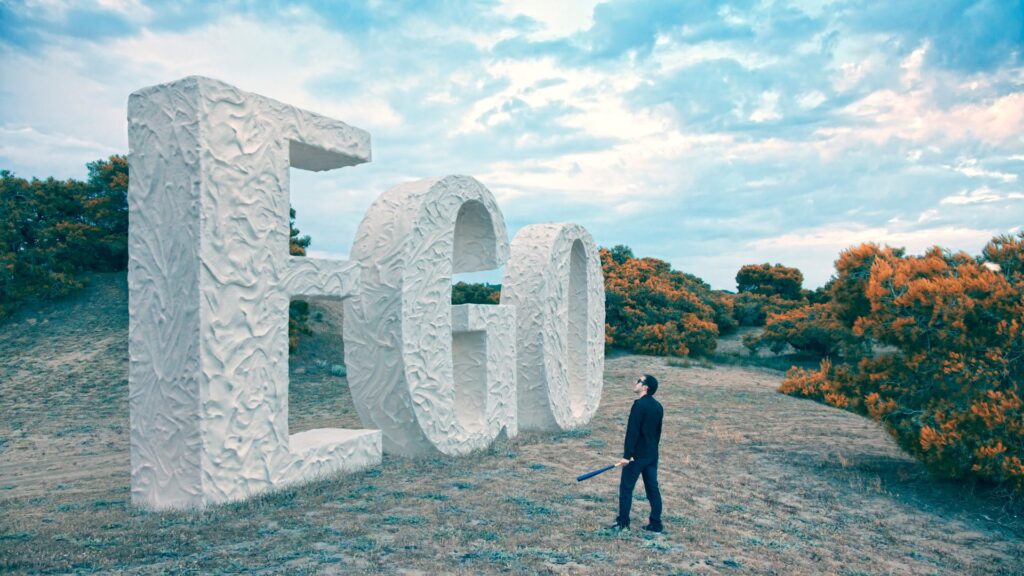



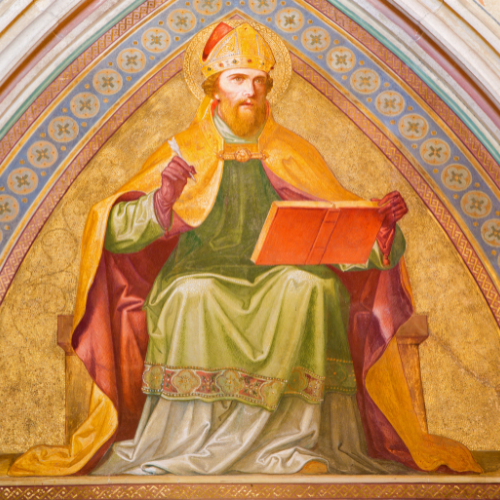

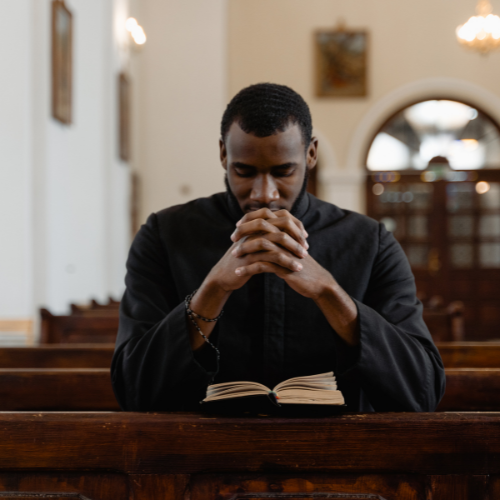
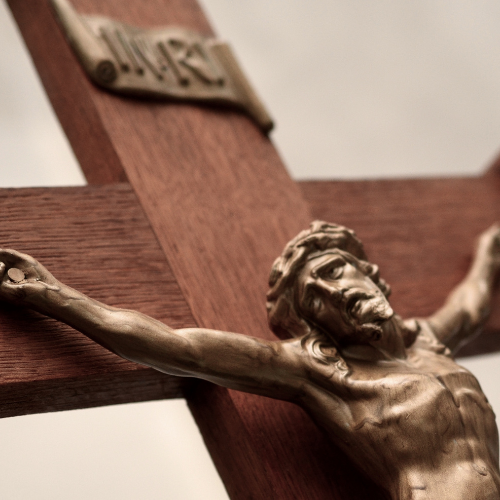
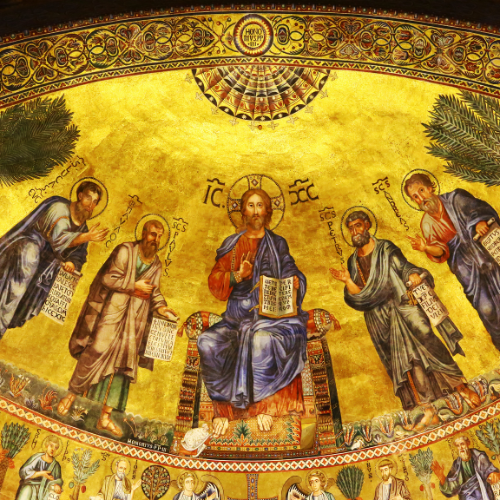
 D5 Creation
D5 Creation